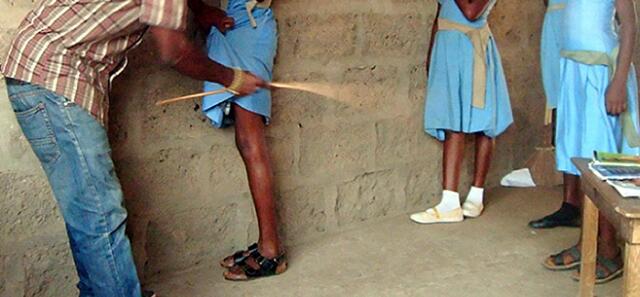Naa Kowah (not her real name) sometimes attends school in fear. The 13-year-old is a form 2 student of Accra Sempe Basic School. While she is bent on getting through with her education, she simply cannot overlook some of the punishments that teachers mete out to students.
“I know caning is meant to correct the students but sometimes the teachers simply take advantage of it to abuse students. Nobody can tell me that using a thick stick to hit a student in the back is not abuse,” Naa Kowah laments.
The teenager’s newfound protest against certain school punishments was borne out of her encounters with the Rebecca Foundation. With support from the United Nations Population Fund (UNFPA), the Foundation has mentored many young girls on matters relating to menstrual hygiene, safe sex and child abuse.
“There was a time we went to the Indafa Park to hold our school games. From nowhere, a teacher popped up using a huge stick to hit the students who had encroached the field. You could see blood on the hands of some of the students, while others had marks from the cane. Yes, the young ones might be wrong in what they did but do not deserve to be violated. How can this be right? The cane should be used to correct, not to injure,” she bemoaned.
Naa Kowah says, like herself, many students feel scared and insecure when in class. This, she attributes to the harsh punishments that some teachers dish out when students go wrong or fail in an examination while others do that to girls they tried to woo without success.
In 2017, the Ghana Education Service (GES) banned all forms of corporal punishments in basic, primary and secondary schools. In January 2019 a Positive Discipline Toolkit which gives alternatives to corporal punishments was adopted by all teachers. The GES urged teachers to use these alternate sanctions as measures for correcting their students. They further noted that corporal punishment inflicts physical pain and also leaves students with lasting effects like trauma, fear, timidity and violent behaviour.
Naa insists some teachers are still not adhering to the GES’ directives. “They still cane and hurt students despite the warnings and this has to stop,” the teenager rallied. She wants the GES to put in place a functioning tracking system to be able to fish out all teachers particularly the male ones who take punishments a step too far. This is because some male teachers use this as an avenue to sexually harass and abuse girls who reject their advances.



